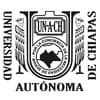Sistema silvopastoril como estrategia para la ganadería en respuesta al cambio climático
Los sistemas agropecuarios intensivos han tenido enormes consecuencias negativas sobre los ecosistemas, contribuyendo particularmente a la sequía y la desertificación. La producción pecuaria en las regiones tropicales enfrenta serias limitaciones, incluyendo un manejo inadecuado, la baja calidad y disponibilidad irregular de los recursos forrajeros y, en última instancia, las consecuencias del cambio climático. En general, los pastos tropicales contribuyen en gran medida a las emisiones de gases de efecto invernadero, especialmente al metano, que está asociado con su alto contenido de fibra. Para contrarrestar el cambio climático se requiere vincular la adaptación con la mitigación. Los sistemas silvopastoriles se presentan como un conjunto de estrategias para mejorar la productividad, reducir los costos de los insumos y aumentar la sostenibilidad ambiental, ya que también mejora el secuestro de carbono y construye la resiliencia del sistema para hacer frente a los impactos del cambio climático.
Briceño-Poot, E., Ruiz-González, A., Chay-Canul, A., Ayala-Burgos, A., Aguilar-Pérez, C., Solorio-Sánchez, F., & KuVera, J. (2012). Voluntary intake, apparent digestibility and prediction of methane production by rumen stoichiometry in sheep fed pods of tropical legumes. Animal Feed Science and Technology, 176(1–4), 117–122.
Broom, D., Galindo, F., & Murgueitio, E. (2013). Sustainable, efficient livestock production with high biodiversity and good welfare for animals. Proceedings of the Royal Society B: Biological Sciences, 280(1771), 20132025.
Canul-Solis, J., Piñeiro-Vázquez, A., Briceño-Poot, E., Chay-Canul, A., Alayón-Gamboa, J., Ayala-Burgos, A., AguilarPérez, C., Solorio-Sánchez, F., Castelán-Ortega, O., & Ku-Vera, J. (2014). Effect of supplementation with saponins from Yucca schidigera on ruminal methane production by Pelibuey sheep fed Pennisetum purpureum grass. Animal Production Science, 54(10), 1834–1837.
Cuartas Cardona, C. A., Naranjo Ramírez, J. F., Tarazona Morales, A. M., Murgueitio Restrepo, E., Chará Orozco, J. D., Ku Vera, J., Solorio Sánchez, F. J., Flores Estrada, M. X., Solorio Sánchez, B., & Barahona Rosales, R. (2014). Contribution of intensive silvopastoral systems to animal performance and to adaptation and mitigation of climate change. Revista Colombiana de Ciencias Pecuarias, 27(2), 76–94.
Dumont, B., González-García, E., Thomas, M., Fortun-Lamothe, L., Ducrot, C., Dourmad, J.-Y., & Tichit, M. (2014). Forty research issues for the redesign of animal production systems in the 21st century. Animal, 8(8), 1382–1393.
FAO. (2015). ESTIMACIÓN DE EMISIONES DE GASES DE EFECTO INVERNADERO EN LA AGRICULTURA UN MANUAL PARA ABORDAR LOS REQUISITOS DE LOS DATOS PARA LOS PAÍSES EN DESARROLLO.
Gerber, P. J., Steinfeld, H., Henderson, B., Mottet, A., Opio, C., Dijkman, J., Falcucci, A., & Tempio, G. (2013). Tackling climate change through livestock: A global assessment of emissions and mitigation opportunities. Food and Agriculture Organization of the United Nations (FAO).
Havlík, P., Valin, H., Herrero, M., Obersteiner, M., Schmid, E., Rufino, M. C., Mosnier, A., Thornton, P. K., Böttcher, H., & Conant, R. T. (2014). Climate change mitigation through livestock system transitions. Proceedings of the National Academy of Sciences, 111(10), 3709–3714.
Herrero, M., Thornton, P. K., Gerber, P., & Reid, R. S. (2009). Livestock, livelihoods and the environment: Understanding the trade-offs. Current Opinion in Environmental Sustainability, 1(2), 111–120.
Kurihara, M., Magner, T., Hunter, R., & McCrabb, G. (1999). Methane production and energy partition of cattle in the tropics. British Journal of Nutrition, 81(3), 227–234.
Lessa, A. C. R., Madari, B. E., Paredes, D. S., Boddey, R. M., Urquiaga, S., Jantalia, C. P., & Alves, B. J. (2014). Bovine urine and dung deposited on Brazilian savannah pastures contribute differently to direct and indirect soil nitrous oxide emissions. Agriculture, Ecosystems & Environment, 190, 104–111.
Lobell, D. B., & Gourdji, S. M. (2012). The influence of climate change on global crop productivity. Plant Physiology, 160(4), 1686–1697.
Moss, A. R., Jouany, J.-P., & Newbold, J. (2000). Methane production by ruminants: Its contribution to global warming. 49(3), 231–253.
Murgueitio, E., Calle, Z., Uribe, F., Calle, A., & Solorio, B. (2011). Native trees and shrubs for the productive rehabilitation of tropical cattle ranching lands. Forest Ecology and Management, 261(10), 1654–1663.
Nardone, A., Ronchi, B., Lacetera, N., Ranieri, M. S., & Bernabucci, U. (2010). Effects of climate changes on animal production and sustainability of livestock systems. Livestock Science, 130(1–3), 57–69.





Gestión del ganado extensivo con collares de geolocalización



FIGAP - Exposición Internacional










